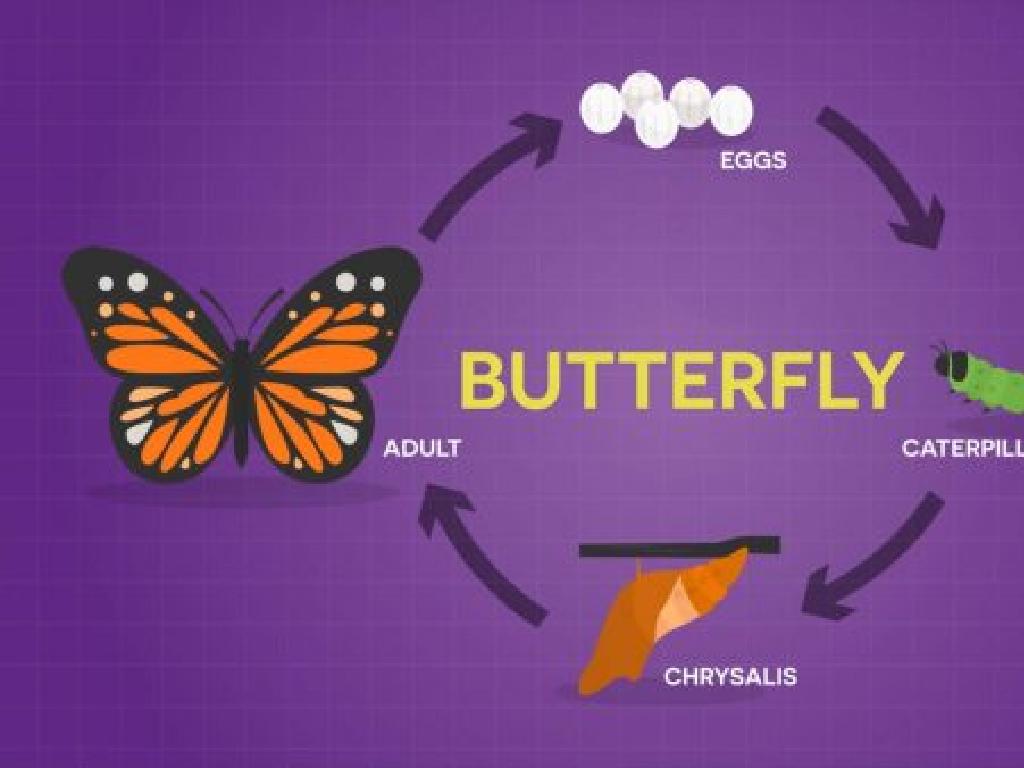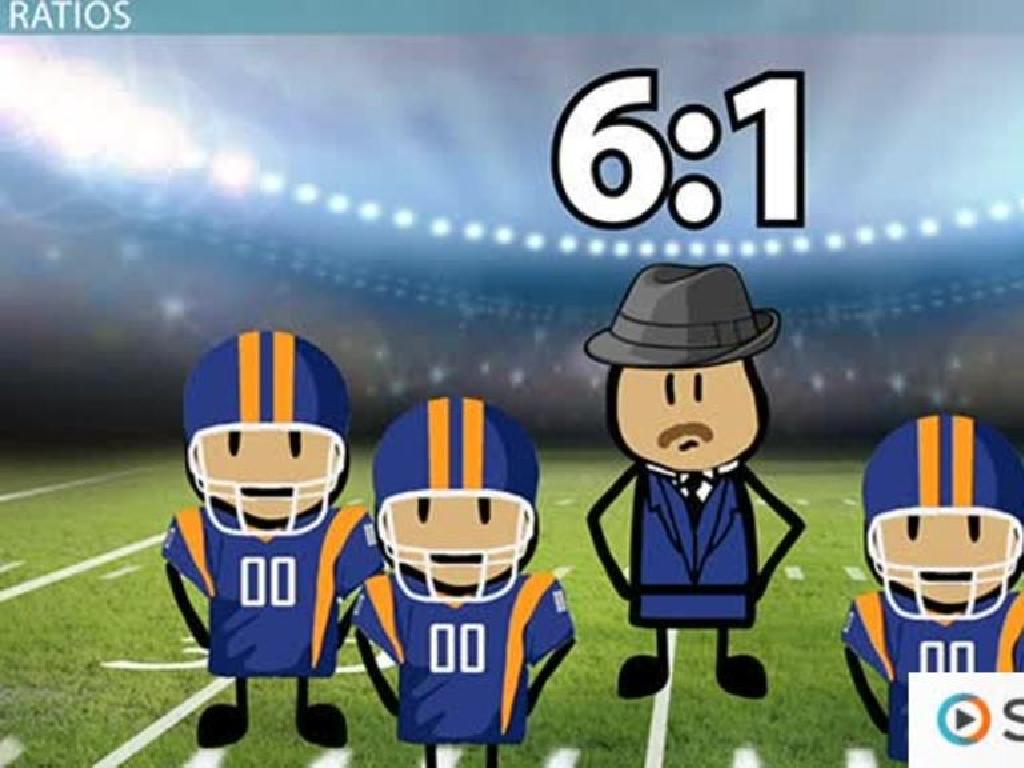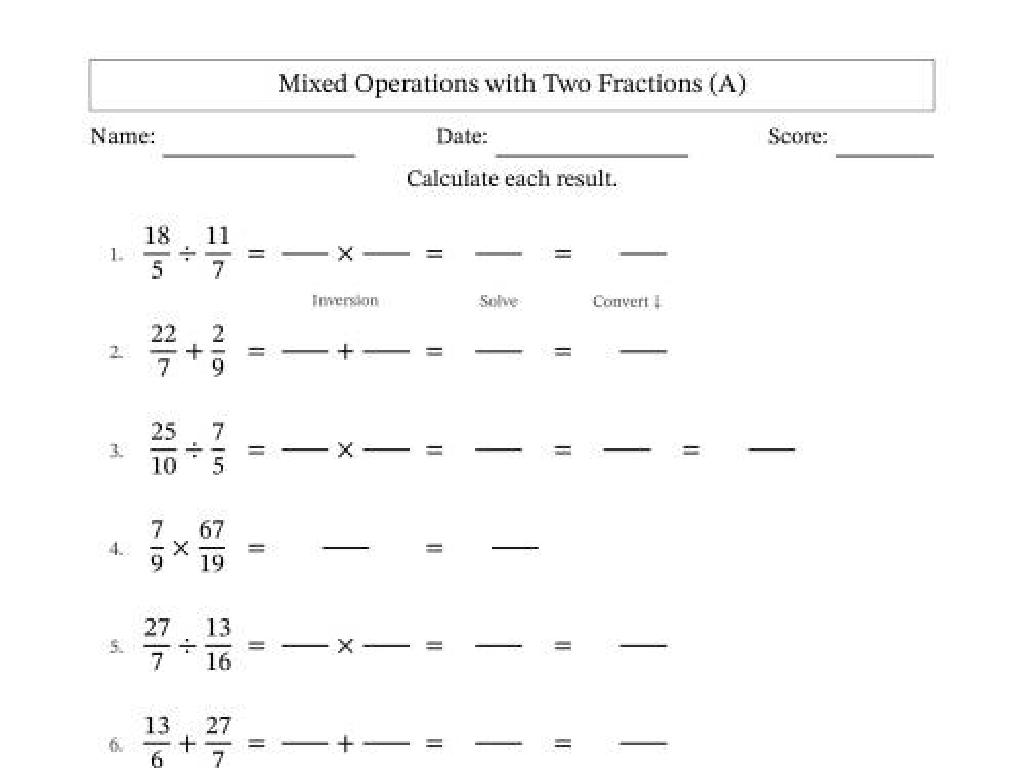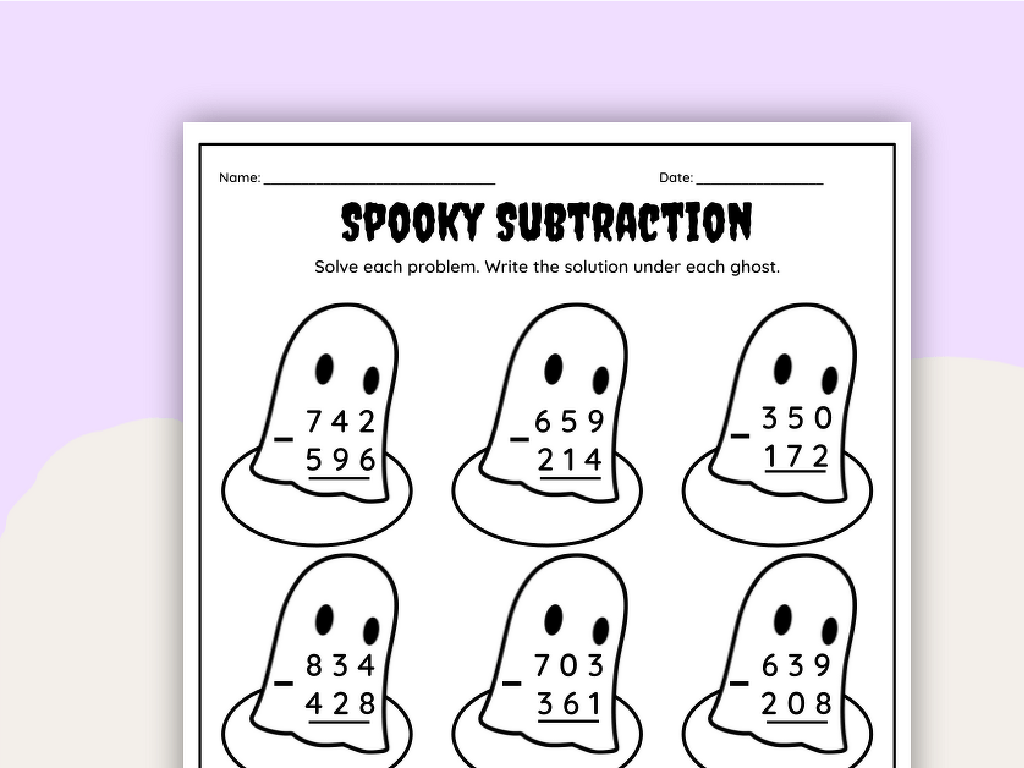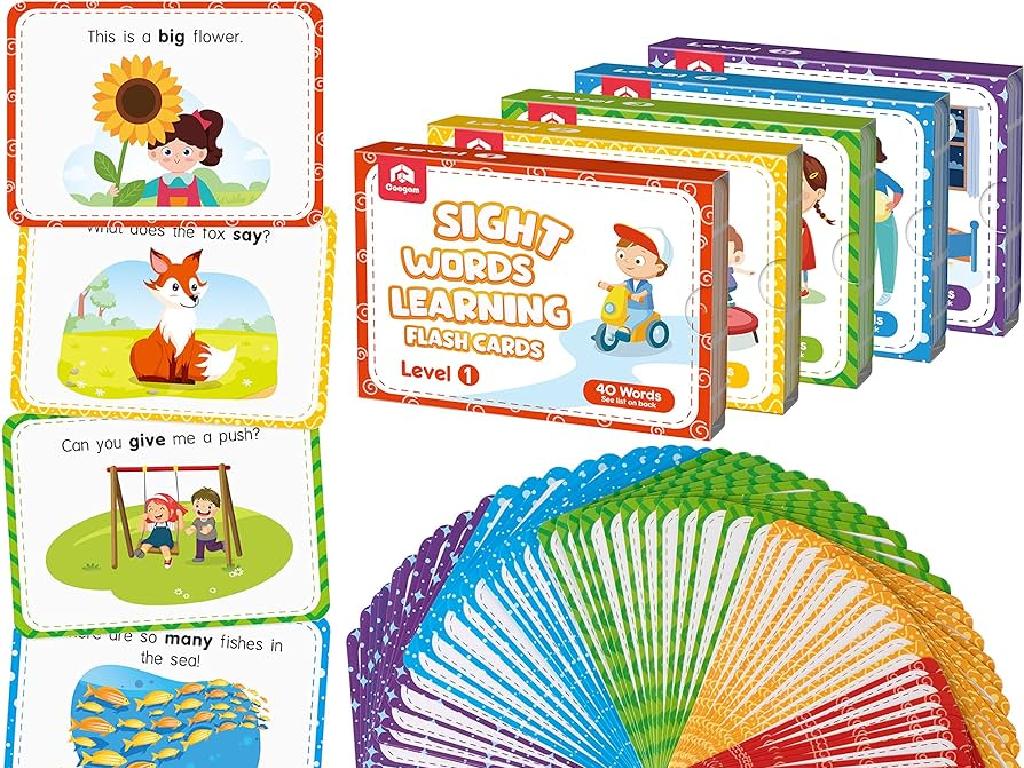Words With -Able And -Ible
Subject: Language arts
Grade: Seventh grade
Topic: Prefixes And Suffixes
Please LOG IN to download the presentation. Access is available to registered users only.
View More Content
Diving into Suffixes: -able and -ible
– Explore word building blocks
– Define prefixes and suffixes
– Prefixes/suffixes modify word meaning
– Focus on ‘-able’ and ‘-ible’
– ‘-able’ and ‘-ible’ mean ‘capable of’
– Usage rules for ‘-able’ and ‘-ible’
– ‘-able’ often follows a complete word, ‘-ible’ after an incomplete word
|
This slide introduces students to the concept of prefixes and suffixes, the essential components that modify the meanings of words. Begin by explaining that prefixes are added to the beginning of a word, while suffixes are added to the end. Today’s lesson will focus on the suffixes ‘-able’ and ‘-ible’, both of which imply capability or suitability. Provide guidance on when to use ‘-able’ versus ‘-ible’: ‘-able’ is typically used when the root word is a complete word on its own (e.g., ‘enjoyable’), while ‘-ible’ is used when the root is not a complete word (e.g., ‘perceptible’). Encourage students to think of examples and to understand that there are exceptions to these rules, which they will learn to identify through practice.
Understanding Suffixes: -able and -ible
– Suffixes modify root words
– Added to word ends, e.g., ‘joy’ becomes ‘joyful’
– They alter meaning or function
– They can change a word’s use in a sentence
– Common suffixes: ‘-ness’, ‘-ful’
– Examples include ‘happiness’, ‘careful’, ‘quickly’
– Focus on ‘-able’ and ‘-ible’
– Both create adjectives, often interchangeable
|
This slide introduces the concept of suffixes, focusing on ‘-able’ and ‘-ible’, which are commonly used to form adjectives. Explain that suffixes are added to the end of root words to change their meaning or how they function grammatically. Provide examples of other suffixes to show variety before honing in on ‘-able’ and ‘-ible’. Highlight that while both suffixes create adjectives that describe the potential or capability of something, they are often used interchangeably, but there are rules that can help determine which to use. Encourage students to think of words they know that end with ‘-able’ and ‘-ible’ and consider how the meaning changes with the addition of these suffixes.
Understanding the ‘-able’ Suffix
– Usage of ‘-able’
– Meaning: capable or fit for
– Implies ability or suitability
– Example: ‘enjoyable’
– ‘enjoyable’ means able to be enjoyed
– Example: ‘comfortable’
– ‘comfortable’ means able to provide comfort
|
The suffix ‘-able’ is often added to verbs to form adjectives, indicating that something is capable of or suitable for a certain action. For instance, ‘enjoyable’ refers to something that can be enjoyed, while ‘comfortable’ suggests that something provides comfort. Encourage students to think of other examples and use them in sentences to grasp the concept better. Discuss how adding ‘-able’ to a verb changes its meaning and turns it into an adjective that describes a potential quality. This understanding will enhance their vocabulary and comprehension skills.
Understanding the ‘-ible’ Suffix
– When to use ‘-ible’
– Meaning: capable of, fit for
– Implies ability or suitability
– Example: ‘perceptible’
– ‘Perceptible’ means able to be seen or noticed
– Example: ‘accessible’
– ‘Accessible’ means easy to reach or enter
|
The ‘-ible’ suffix is often used when the root word is not a complete word in English or comes from Latin. It turns verbs into adjectives, suggesting that something is capable of being done. For example, ‘perceptible’ comes from the Latin ‘percipere’, meaning able to be grasped with the senses. ‘Accessible’ suggests that something is within reach or easy to approach. Encourage students to think of other ‘-ible’ words and use them in sentences to grasp the concept better. Discuss the nuances of using ‘-able’ versus ‘-ible’ and how they often sound similar but are used with different root words.
Mastering -able and -ible Suffixes
– No strict rules for -able and -ible
– ‘-able’ often follows a full word
– ‘like’ becomes ‘likable’
– ‘-ible’ follows a non-complete word
– ‘access’ turns into ‘accessible’
– Remember common exceptions
– ‘responsible’, ‘irresistible’ are exceptions
|
This slide aims to help students understand the general patterns for using the suffixes ‘-able’ and ‘-ible’. While there are no definitive rules, students can use the patterns as a guide. When the root word is complete, ‘-able’ is typically used, as in ‘like’ becoming ‘likable’. However, when the root is not a complete word, ‘-ible’ is more common, such as ‘access’ turning into ‘accessible’. It’s crucial for students to memorize common exceptions to these patterns, such as ‘responsible’ and ‘irresistible’, which do not follow the general trend. Encourage students to practice by identifying the root words and determining the correct suffix to use, as well as creating a list of exceptions to memorize.
Practice with -able and -ible Suffixes
– Breaking down words together
– Identifying root words
– Choosing the correct suffix
– Interactive example practice
– ‘reason_____’ becomes ‘reasonable’, ‘comfort_____’ turns into ‘comfortable’, ‘respons_____’ is ‘responsible’
|
This slide is designed to engage students in an interactive practice of applying the suffixes ‘-able’ and ‘-ible’ to root words. Start by explaining the process of breaking down words into their root form and then determining which suffix to add. Encourage students to think about the meaning of the root word and how it changes when a suffix is added. Use the interactive examples to illustrate how ‘reason’ becomes ‘reasonable’, indicating something is logical; ‘comfort’ turns into ‘comfortable’, meaning it provides comfort; and ‘respons’ becomes ‘responsible’, showing an obligation or accountability. Have students come up with additional words and work through them as a class. This activity will help solidify their understanding of how suffixes can alter word meaning and enhance their vocabulary skills.
Group Activity: Crafting Words with Suffixes
– Form groups for word listing
– List words with ‘-able’ and ‘-ible’
– Examples: ‘enjoyable’, ‘readable’, ‘accessible’, ‘perceptible’, ‘edible’
– Discuss suffix choice reasons
– Is it ‘acceptable’ or ‘acceptible’? Discuss patterns or rules you notice.
– Share a creative word with class
|
This group activity is designed to engage students with the suffixes ‘-able’ and ‘-ible’. Have the class form small groups and task each with creating a list of words that end with these suffixes. Encourage them to use dictionaries or brainstorm words they are familiar with. After listing, each group should discuss why they chose ‘-able’ over ‘-ible’ for each word, exploring any patterns or rules they can identify. To conclude, each group will share their most creative word and explain their choice. For the teacher: be prepared to guide discussions on suffix usage, provide examples of exceptions to the rules, and encourage creativity. Possible activities include creating a word wall, illustrating the words, or using them in original sentences.
Class Activity: Suffix Hunt
– Search for ‘-able’ or ‘-ible’ words
– Record the words and their roots
– Define each new word
– Use a dictionary if you’re unsure about meanings
– Share findings with the class
– Discuss how suffixes change word meanings
|
This activity is designed to help students recognize and understand the use of the suffixes ‘-able’ and ‘-ible’ in words. Students will search their textbooks for words ending with these suffixes, note down their root words, and define the new words they have found. This will enhance their vocabulary and comprehension of how suffixes alter the meaning of root words. Encourage students to use context clues from the textbook or a dictionary to ascertain meanings. After the hunt, students should be ready to share their findings with the class, fostering a collaborative learning environment. Possible variations of the activity could include creating sentences with the new words, illustrating the words, or categorizing them based on their suffix.
Homework: Crafting Stories with ‘-able’ and ‘-ible’
– Write a short story
– Include 10 words with ‘-able’ or ‘-ible’
– Words like ‘enjoyable’ or ‘incredible’ show the suffixes in action
– Underline each ‘-able’ and ‘-ible’ word
– This helps identify and emphasize the words
– Share your story in the next class
– Practice public speaking and celebrate creativity
|
This homework assignment is designed to reinforce the lesson on suffixes ‘-able’ and ‘-ible’. Students are tasked with writing a creative short story that includes at least 10 words ending with these suffixes, which they will underline to demonstrate their understanding. This activity not only helps students recognize and use these suffixes correctly but also encourages them to be creative in their writing. In the next class, students will have the opportunity to share their stories, which will help build their confidence in public speaking and allow the class to learn from each other’s use of language. Provide examples like ‘comfortable’, ‘reasonable’, ‘perceptible’, and ‘accessible’ to get them started.
Review: Suffixes -able and -ible
– Recap on -able and -ible suffixes
– Both suffixes form adjectives meaning ‘capable of, susceptible of, fit for’.
– Open floor for any questions
– Encourage daily usage of suffixes
– Try using new words with these suffixes in conversations or writing.
– Practice makes perfect
– The more you use them, the easier it becomes to remember.
|
As we wrap up today’s lesson, let’s review what we’ve learned about the suffixes -able and -ible. These suffixes turn verbs into adjectives, indicating the ability or capacity of something. For example, ‘enjoyable’ means something can be enjoyed. It’s important to note that not all words take the same suffix, and there are specific rules that can help determine which suffix to use. Now, let’s open the floor for any questions you might have don’t be shy, every question is valuable! Lastly, I encourage you all to actively use words with these suffixes in your daily vocabulary. The more you practice, the better you’ll get at recognizing and using them correctly. For homework, try to come up with a list of new words that include these suffixes and use them in sentences.

